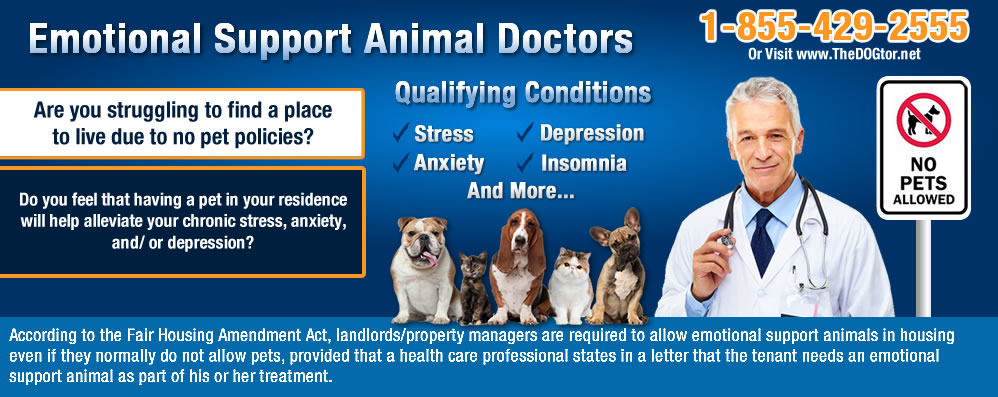Flying with Emotional Support Animals
 Having psychological and emotional problems can limit your ability to enjoy everyday situations that many take for granted, from dining out with friends and family to attending classes at a college or university. One particular area of complication for many of those affected by severe anxiety and other emotional or psychological problems is public transportation. From buses to trains to airplanes, traveling with others can be extremely uncomfortable and debilitatingly difficult for those with mental issues. Air travel can be particularly unpleasant given the tight quarters and unusual form of transportation.
Having psychological and emotional problems can limit your ability to enjoy everyday situations that many take for granted, from dining out with friends and family to attending classes at a college or university. One particular area of complication for many of those affected by severe anxiety and other emotional or psychological problems is public transportation. From buses to trains to airplanes, traveling with others can be extremely uncomfortable and debilitatingly difficult for those with mental issues. Air travel can be particularly unpleasant given the tight quarters and unusual form of transportation.However, it is possible in some cases to find relief through the use of emotional support animals when travelling by plane. While airline policies may differ slightly, generally it is permissible to fly with a support animal if you provide the requisite notice to the airline. Generally, it is best to make arrangements for flying with an emotional support animal as far in advance as possible, as this gives the airline sufficient time to contact your doctor and make any logistical adjustments required on their end. Typically, at least 48 hours notice is required. While the emotional support animal requirements currently in place may seem like a hassle, they are needed to ensure that only those who legitimately need accommodations receive them.
The major emotional support animal airline requirement is in the form of a letter. This emotional support animal letter for flying must be on from a licensed medical or mental health professional and must be written on that individual’s professional letterhead. In addition, to be valid, an emotional support animal letter for flying must be less than one year old.
The letter for an emotional support animal airlines require needs to include specific information about the traveller’s illness. In particular, the letter must note that the traveller has a mental health disability that is listed in the DSM-IV. To qualify as a disability, the mental health issue must “substantially limit one or more major life activities.” Additionally, the letter must explain that the emotional support animal is not merely a convenience or a desire, but is necessary for the traveller’s treatment or health during the air travel or upon arrival at the traveler’s destination.
Some airlines may have additional requirements or restrictions, such as a limit on the type of animals that are allowed on the plane. Additionally, airlines may bar travelers from bringing aboard support animals in training, an may require that the animal remains in a carrier and does not occupy a seat during the duration of the flight. To avoid unforeseen difficulties, it is best to contact the airline well in advance of your flight and thoroughly review the requirements with an airline representative.


